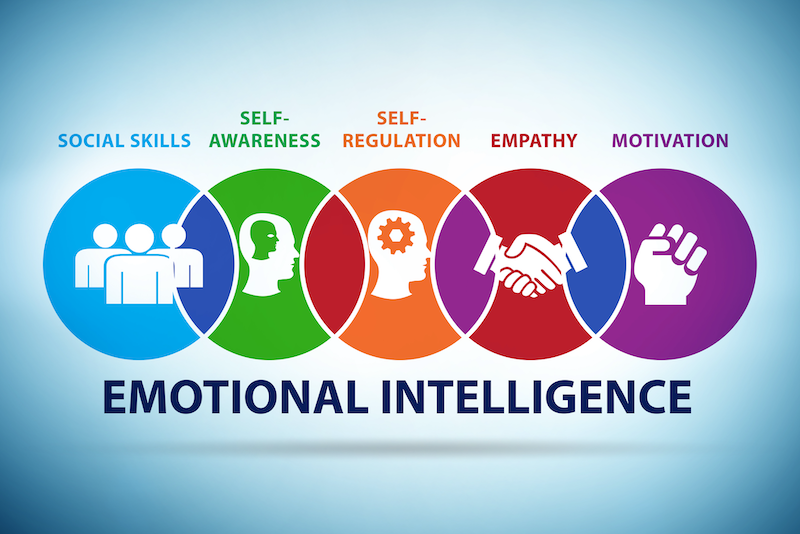
by Cindy Heilman | Leadership, Resident Centered Dining Service, Retain Staff

The two women were walking down the hallway heading towards the kitchen to begin their work shift at an independent living community. They just finished a segment of the training session and were discussing their opinions.
“First of all,” the older one said, “I never heard the term ‘soft skills’ and I certainly didn’t realize I had them. Timewise I’ve probably worked longer on our food serving team than most anyone else.
I learned early to adapt to the many changes made over the years. With my natural curiosity, I communicate easily with the residents, and as you know, with my coworkers.
I think my mom taught me about empathy and she always encouraged learning new skills.
I’m glad they taught those things in today’s training session. Many of our coworkers need to learn those skills. Some are downright stubborn and need to add these skills to their toolbox.
I love my job, always have, right from the beginning, so learning new ways to work has always excited me.”
“Well, I thank you for taking me under your wing and guiding me when I needed it,” replied the younger woman, obviously newly hired.
“I’m also really delighted with this Kind Dining® training module number 3 because, like you, I love learning new ways to work.
I plan to stay in this community, so I want to be a top-notch team player. You make yourself available to talk with me about our work. I enjoy that and discussing what we just learned helps me even more. I appreciate that.”
One person can make a difference.
It’s called the Power of One and it often begins with helping a change of attitude, to encourage learning new ways that change a person’s life and changes the life around them, all for the better.
Discussion after learning sessions brings what they were taught to a personal level and embeds the information like a file cabinet where the content can be brought out and used again and again. What was learned becomes second nature; building confidence.
Kind Dining® curriculum was created to change lives for the better.
Our training is an opportunity to introduce new skills, but more importantly, it’s a way to reshape thinking that will transform the lives of your employees.
Your food serving team will take note of the residents’ increased satisfaction as they receive small acts of consideration, Such as starting a meal with a smile from your server. Add pleasant chitchat and watch the residents at the table light up. It’s good to be recognized. The goal is to make your community a great place to live and a great place to work! Life is good.
Be ♥ Kind Tip: Encourage learning new ways to work, it changes the life around them.

by Cindy Heilman | Leadership, Resident Centered Dining Service, Retain Staff

Do you know what the most successful companies look for in an applicant when hiring?
They seek a person with the combination of skills that enable a person to learn, relearn, and relearn again.
We know how rapidly changes are happening in our long-term care communities. Our industry has been experiencing major changes and upgrading of services.
People with EQ (emotional quotient or intelligence) can easily learn the changes necessary to keep their community reputation far above their competition. Those people understand, empathize, and conquer unexpected and distressing situations that arise in the kitchen, dining room, or anywhere in the community.
Building strong workplace relationships comes naturally to those with emotional intelligence as they turn intention into performance with the ability to command perceptive decisions.
The EQ skills that Kind Dining® training sessions have been teaching include self-management, which is controlling your emotions in healthy ways by adapting to changes in work responsibilities and taking initiative.
We’ve been training in the skills of empathy, active listening, social interaction, and group dynamics. Relationships, including how to build bonding relationships to inspire and create a team that works together are stressed in our training.
In our training of skills, we teach how your emotions affect your thoughts, and behavior and how to build self-confidence. If you cannot control your stress it can lead to serious physical health problems high blood pressure, a reduced immune system, and an increase in earlier aging.
As a long-term care provider, you want your community to be the leader in your industry, surpassing any competition. Your employees can do that with the training of these skills that benefit your residents, your community, and your employees themselves.
We have returned to ask healthcare providers their thoughts on what advantages they gained from our training.
Working better as a team and improved communication with both coworkers and residents stood out among others in their answers. After completing the training curriculum, the learners thought and acted differently!
Nearly all agreed with this statement: Kind Dining has helped me to understand my role and the importance of teamwork to enhance dining and nutrition for residents in my care center.
Yes, hospitality and healthcare go hand in hand.
Kind Dining® training sessions were designed for all employees who serve meals or beverages, including nursing and wellness teams, housekeeping departments, recreation staff, and managers.
Food servers that learn the skills of emotional quotient are a powerful asset to the company. When they perform with self-confidence from the skills Kind Dining® teaches, they provide quality service. Sessions are now available online.

by Cindy Heilman | Leadership, Retain Staff

A retired friend told me recently how she made an excellent living in the old days, by being a waitperson during the years of raising a family.
“I was good at it. My aunt trained me,” she said. “I was pleasant and paid close attention to my customers’ tables without obviously staring at them. With my ‘regulars,’ I remembered what their preferences were. That impressed them. I pampered them without fussing and I was thoughtful and kind.
It was just a matter of good manners carried a little further. It works very well. I was more than civil to my coworkers and often stepped in to help when it was needed. We all wanted to get the food to the table while it was still hot. Of course, in return, they responded with the same kindness. I loved my customers, my work, the wait staff, and the results it brought.”
When any query is raised about improving work performance, training, and education are always at the top of the list. It’s unfortunate, but not everyone was raised with good manners and showed consideration for others.
In communities, serving older adults it is imperative to display those fine qualities along with the professional skills learned for fulfilling your responsibility. Residents receiving physical help are in dire need of kindness and consideration.
Coworkers who are sometimes overworked and may have personal problems of their own running around in their heads, also appreciate a helping hand from another teammate. That kind of relationship with a coworker builds commitment to the job and the community.
A few minutes of chit-chat creates cultural conditioning, shows respect, and establishes trust between coworkers. These may seem like small doings but they are important social skills that make a better environment. Employees stay on the job when they are content with their working relationships.
Kind Dining® training curriculum has impressed companies with the value of educated, multi-skilled, kind, and civil employees.
It is commonly understood that well-trained employees, confident in their work, remain on the job much longer than those without proper training. Our online courses are for your full and part-time, direct care workers, and managers.
Our training sessions are experiential. We train by using action, reflection, application, and performance.
All employees build empathy to respect the aging process by using kindness to connect with residents. They also learn to build solid, trusting relationships with their coworkers.
We teach personal and professional skills that improve the lives of your residents while improving the lives of those who serve them.
Be ♥ Kind Tip: Help residents feel they made the right decision by moving into your community. Remember you are the face of the organization.





